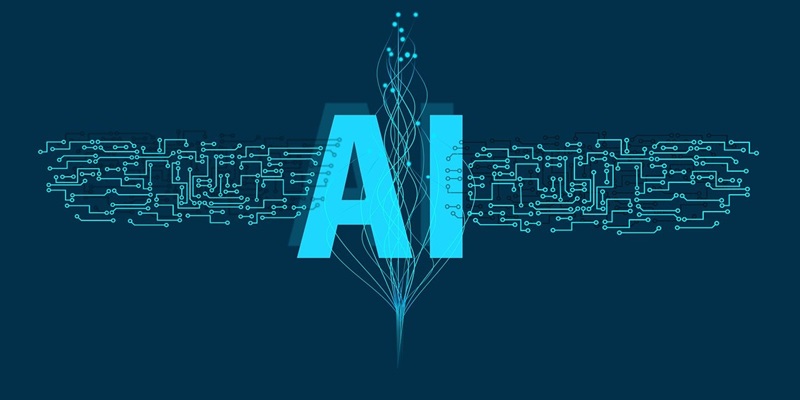One major casualty of the rise of ChatGPT is the snooty attitudes of hard-core, logic-loving professors who said AI would never come. With the advent of ChatGPT, a powerful language model developed by OpenAI, the world of artificial intelligence has witnessed a paradigm shift. Today, AI’s capabilities and potential have skyrocketed, challenging the beliefs of skeptics and opening up a world of possibilities. This article delves into the implications and consequences of this transformation, exploring topics such as energy consumption, hardware demand, AI’s impact on complex problems, decision-making processes, ethics, and the future of the internet.
The Challenge of High Energy Consumption
As the AI landscape expands and more advanced models are developed, one significant concern arises—the considerable energy consumption required to power these systems. While AI unlocks grand opportunities, it also poses a challenge in managing the associated electricity bills. The constant need to strike a balance between technological advancements and environmental sustainability becomes crucial. Researchers and innovators are actively seeking ways to reduce energy requirements and optimize AI systems to minimize their carbon footprint.
High Demand for AI Hardware
The exponential demand for AI applications has led to a surge in the need for specialized hardware, particularly graphics processing units (GPUs), which are essential for training and running AI models. Companies like Nvidia, a leading GPU manufacturer, face a monumental task in keeping up with this skyrocketing demand. The shortage of AI hardware has consequential effects on the AI ecosystem, driving up costs and potentially slowing down research and development efforts. Striking a balance between supply and demand becomes imperative for the continued growth and advancement of AI.
The Impact of AI on Intractable Problems
AI’s entry into complex problem-solving creates new layers of intricacy, as it now weighs in on matters like the politics of the Middle East. By introducing AI into these debates, the landscape of intractable issues expands. While AI can provide valuable insights, its involvement adds another dimension, amplifying the complexities associated with these age-old problems. Understanding how to leverage AI effectively while deciphering its limitations in navigating such intricate matters emerges as a crucial consideration.
Understanding AI’s Thinking Mechanism
A fundamental question arises regarding the cognition of AI systems – do they genuinely engage in thinking or rely on statistical mechanisms? While AI models like ChatGPT demonstrate impressive language generation abilities, it remains essential to discern whether their decision-making processes involve cognitive function or mere statistical probabilities. The implications of AI relying on chance rather than genuine cognitive abilities can shape the expectations we have of AI and its role in various domains.
AIs Behaving Like Children
Interacting with AI systems often feels akin to dealing with children – sometimes they make things up, and occasionally they inadvertently expose the unfiltered truth. Although amusing at times, this behavior raises concerns when AIs start disseminating unreliable information or sharing truths without considering the nuances of social context. Striking a balance between the transformative potential of AI and ensuring responsible behavior becomes critically important to prevent AI from inadvertently causing harm.
Legal Considerations and AI’s Knowledge Acquisition
The integration of AI-generated content into the fabric of the internet raises intriguing questions about the legal and ethical implications. Can an AI claim compensation for “learning” from specific individuals or sources? The convergence of AI with the internet necessitates a thorough examination of ownership, copyright, and intellectual property rights in the age of machine-generated content. Defining legal frameworks that account for the intricacies of AI knowledge acquisition becomes essential to maintain fairness and accountability.
The Future of the Internet and AI
The coexistence of AI and the internet gives rise to pondering the openness of the online world. As AI systems become more pervasive and influential, questions arise regarding the future of the internet, its accessibility, and the power dynamics at play. Will the internet remain an open platform for information exchange, or will AI-driven algorithms control and filter content? Evaluating the potential challenges and opportunities that arise from the integration of AI and the internet becomes crucial in shaping a future that supports innovation, diversity, and fair access to information.
The Generational Shift in AI Learning
An important transition is occurring in the AI ecosystem: the shift from AI learning solely from human-created information to AI-generated content shaping the training data for future AI models. The first generation of AI systems learned from curated data, but as generative AI models like ChatGPT escaped the confines of research labs, AI-generated content increasingly seeped into the Internet and subsequent generations of AI training sets. Understanding the consequences and benefits of this generational shift becomes paramount to ensure the continued progress and responsible development of AI systems.
Perspectives on AI’s Hype and Potential
Opinions on AI’s impact span a wide spectrum. Some pundits dismiss AI as overhyped, comparing it to failed dot-com company Pets.com before the crash. Others envision potential akin to Amazon’s transformational success in its early days. The diversity of perspectives highlights the uncertainty surrounding AI’s future trajectory. Evaluating the current landscape, acknowledging its limitations, and exploring avenues for responsible innovation can help navigate this evolving realm.
With the rise of ChatGPT and the broader implications of AI advancements, the landscape of artificial intelligence is rapidly changing. As the field expands, it becomes imperative to address concerns such as energy consumption, hardware demand, ethical decision-making, and the impact on global problems. Furthermore, the integration of AI with the internet poses challenges and uncertainties about openness, legality, and generational shifts in learning. Understanding these complexities, while remaining cautious and ethical, will ensure that AI continues to shape our world in a positive and transformative manner. As we explore AI’s potential, we must recognize the ongoing developments, seize opportunities, and tackle challenges to harness the full benefits of this technological revolution.

